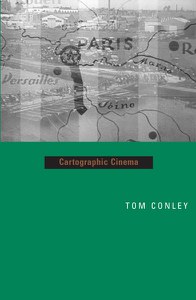Alongside all the usual activities happening in our classrooms and across our programmes (including our Year 3 students making plans for their upcoming Semester Abroad…), our outreach work centred on language learning in schools has also started up again.
On the European Day of Languages, a team of our Language Ambassadors were invited along to Wallace High to talk to the pupils there about the benefits of language learning. For Patrick, who is in his 2nd year studying French and Spanish with us, this was his first in-person school visit and a really positive experience: ‘The afternoon was a great success, pupils were engaging with the activities we had set out for them and have asked to be included in the future planning of similar events. From my point of view, it was an invaluable piece of my time used to hopefully persuade young pupils to continue to study languages.’ Feedback from the S3 pupils at the school was equally positive and huge thanks to Modern Languages teacher, Michelle McCaffery, for inviting us. We’re delighted our Ambassadors helped to convey the fact that, in the words of one pupil, ‘languages can take you places you would not expect!’
Despite some pretty atrocious weather, many of the Ambassadors got together at the end of that week, too, for a training and information session about the Ambassador scheme over the coming year. And while we were talking about that on campus at Stirling, some of the Ambassadors from our Strathclyde partners were out at St John Ogilvie High School, meeting with pupils and teachers there, including our own graduate Sam Evans! We’ll be joining forces for more school visits over the weeks ahead, working with Cédric Moreau from Strathclyde and Emma McLean from SCILT so watch this space…
And on Saturday 1st October, Cristina Johnston, Pete Baker, Fiona Noble and Elizabeth Ezra ran an online workshop for senior phase secondary school pupils, focusing on the multiple benefits that can come from using films as part of the ways we study languages. The event was part of a series of workshops organised by SCILT and was supported on the day by Sheena Bell, Suzanne Ritchie and Alice Lister. We were also really pleased that three of our current students, Dagmara, Alex and Helena, were able to join us on the day to talk about their experiences learning languages and, in particular, the ways in which film and visual culture have formed part of their own language learning. And we’re especially grateful, of course, to all the pupils who attended, from across Scotland, students of French, Spanish, German and Italian. They asked brilliant questions and worked hard on listening exercises involving songs from Encanto, as well as thinking about the wide range of topics that might emerge through the study of that kind of film.
Thank you, merci, Danke, grazie, gracias… to all the pupils at our SCILT workshop and to everyone who has been involved with our outreach activities so far.
 Hannah Grayson
Hannah Grayson
 Adventures
Adventures  French at Stirling
French at Stirling


You must be logged in to post a comment.